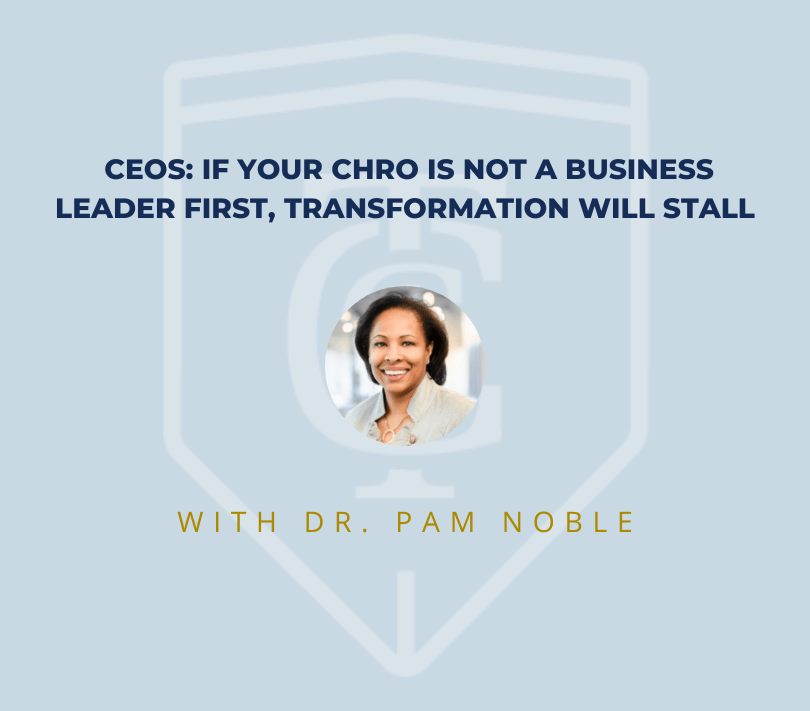
Every CEO understands the risks: economic pressures, workforce disruptions, geopolitical instability, and technological advancements are constantly reshaping business. However, many organizations still see their CHRO as just a functional specialist rather than a vital strategic partner. That is a mistake.
The CHRO of today, and even more so of the future, is much more than a guardian of people and culture. They must be a business leader first, leveraging HR expertise as a catalyst for transformation. Without this essential mindset shift, even the most compelling strategies will fail in execution.
Beyond HR: Business Acumen as the Core Imperative
The modern CHRO must be a skilled business leader. This involves understanding balance sheets, capital allocation, and financial ROI with the same confidence as workforce strategy or talent development. CEOs and boards should expect their HR leaders to frame decisions in terms of growth, profitability, and enterprise value. The ability to link culture to financial performance is no longer optional, it is essential.
Architects of Transformation
What sets the most effective CHROs apart today is not just their HR expertise but their capacity to lead comprehensive enterprise transformation. They act as enterprise leaders who link strategy, operations, culture, and people. They are willing to challenge assumptions, ask difficult questions, and serve as catalysts for change, while fostering the trust and alignment needed to advance organizations.
Technology now plays a central role in this mandate. Artificial intelligence, automation, and digital innovation are transforming how companies operate, and these are as much about people as they are about technology. The CHRO’s role is to ensure technology is used not only for efficiency but also to boost human potential, blending business performance, empathy, and humanity into the culture.
The Power of Middle Managers
While senior leadership sets the vision, it is middle managers who decide whether transformation speeds up or slows down. They are the ones who turn strategy into daily actions, influence how teams experience change, and either drive or halt momentum. CHROs need to focus on developing capabilities here, arming middle managers to be agents of change while also preparing them as future leaders.
This is particularly urgent now. Many seasoned CHROs who guided organizations through the past decade’s crises are stepping aside, leaving a new generation to fill a role that has grown significantly in complexity. Succession cannot be left to chance. Building leadership depth across the middle layers of the organization ensures continuity, resilience, and a pipeline of leaders who are already steeped in values and strategy.
Raising the Level of Leadership Across the Organization
CHROs are in a unique position to influence leadership skills at all levels. From the C-suite to the frontline, HR leaders must shape how leaders present themselves, how they develop others, and how they represent the organization, both inside and outside. This isn’t about “soft skills.” It’s about the strategic ability to mobilize, align, and inspire in ways that directly affect business results.
A Call to CEOs and CHROs
For CEOs, the message is clear: if you want transformation to last, you must empower your CHRO as a strategic business leader. Anything less will undervalue your future.
For CHROs, the challenge is to fully embrace your role as a business leader who also provides HR expertise. Organizations that will succeed are those whose CHROs combine financial skills with cultural understanding, lead in a world driven by technology, and intentionally develop leadership strength throughout the organization.
The stakes are high, but so is the opportunity. CEOs who elevate their CHROs as true business leaders, and CHROs who embrace that role, will not only strengthen their organizations today but also secure their legacy for the future.
About Pam Noble
 Pam joined The Christopher Group in 2019 as the President of the Consulting Services Division and Chief Human Resource Officer. She now serves as our Chief Operating Officer, President, Executive Recruiting Solutions & Engagement, Culture, Belonging & Inclusion Practice Leader. With over 25 years of comprehensive human resource leadership, Pam currently leads the Executive Solutions and DEIB Practice. Her extensive experience as a former CHRO and Chief Talent Officer has enabled her to build HR departments as strategic partners, enhance corporate-wide employee engagement, and spearhead DEIB initiatives—all while maintaining a reputation for high personal integrity.
Pam joined The Christopher Group in 2019 as the President of the Consulting Services Division and Chief Human Resource Officer. She now serves as our Chief Operating Officer, President, Executive Recruiting Solutions & Engagement, Culture, Belonging & Inclusion Practice Leader. With over 25 years of comprehensive human resource leadership, Pam currently leads the Executive Solutions and DEIB Practice. Her extensive experience as a former CHRO and Chief Talent Officer has enabled her to build HR departments as strategic partners, enhance corporate-wide employee engagement, and spearhead DEIB initiatives—all while maintaining a reputation for high personal integrity.
Pam has a Doctorate in Transformational Leadership and Coaching from MIU, where her dissertation focused on unconscious bias. To learn more about Pam visit her bio page.

